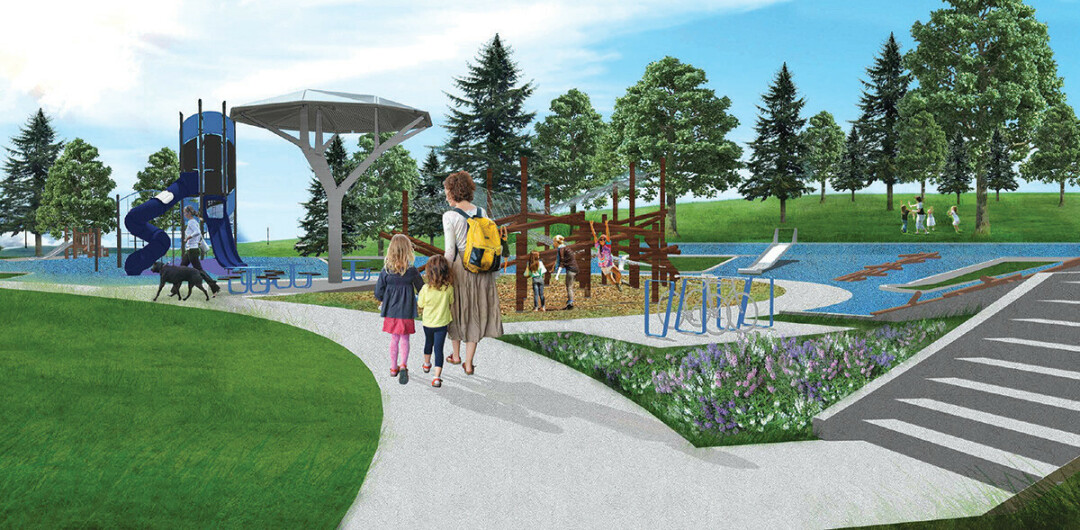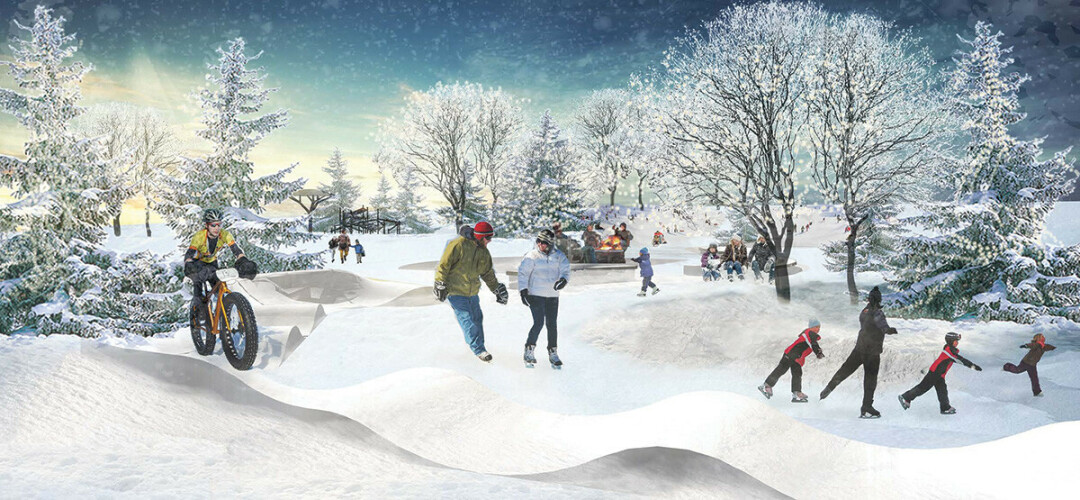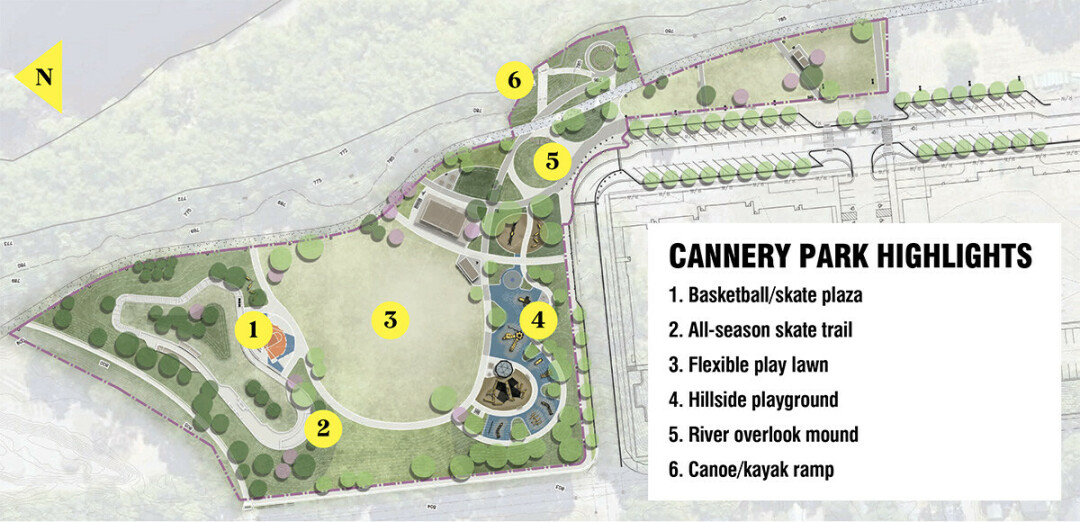THE PLAN’S IN THE CAN: Cannery Park Will Offer Unique Features
E.C. City Council gives go-ahead for new park in redevelopment district

Construction will start as soon as the fall on a brand-new park to serve Eau Claire’s latest redeveloped neighborhood.
Earlier this summer, the Eau Claire City Council gave the go-ahead to a site plan for Cannery Park, which will be built in a formerly industrial area between North Oxford Avenue and the Chippewa River Trail, on the west bank of the river.
While the park is meant as a replacement for nearby Kessler Park, which will be redeveloped, it will be much more than a small neighborhood park like its predecessor.
“We understand that it’s along the river and it’s going to be used as a community space as well,” said Steve Plaza, who oversees the city’s parks, forestry, and cemetery division.

Cannery Park will cover 6 acres, three times larger than the park it’s replacing. In addition to providing open space for the neighborhood’s population – which is expected to grow as new apartment buildings rise – Cannery Park will include the kind of things you might expect, such as a a playground, a sledding hill, a shelter with community gathering space, and a basketball court.
But there will be a number of other elements that will make the park stand out, Plaza added. Among these is the concrete skate trail, which will provide skateboarders, rollerbladers, bikers, and others with wheels a place to hone their skills. During the winter, the interior of the trail can be flooded, creating a unique spot for ice skaters. The park will also include an area for food trucks, a river overlook next to a canoe and kayak ramp to make the water more accessible, and a playground with equipment and elements that reflect the city’s – and the neighborhood’s – history, including lots of logs an even an abstract metal “can.” (A century ago, the area was home to large canneries.)
The park’s estimated cost is $3.4 million, and with luck will be completed by the fall of 2023.























